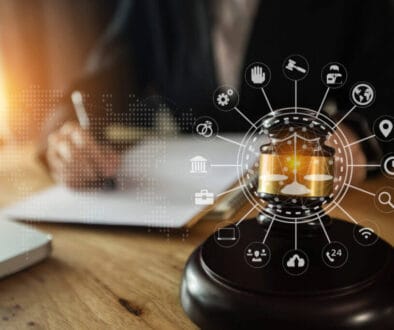Well this is Awkward- When is it Okay, During COVID 19, to Ask a Client or Customer Who Owes Me Money to Repay My Business?
Well this is Awkward- When is it Okay, During COVID 19, to Ask a Client or Customer Who Owes Me Money to Repay My Business?
COVID-19 has created financial hardships for individuals and companies throughout the United States. From large airlines and hotel chains to family-owned restaurants and children’s summer camps, businesses of all types and sizes are hurting financially.
Companies that have outstanding accounts receivable need those funds to continue operating and make payroll. However, when is it okay to ask for that money knowing that many people and companies are still suffering financially from the COVID-19 pandemic?
Is the Business Closed or Is the Client Out of Work?
If you know for sure that a business remains closed or is only partially reopened or an individual is out of work, asking for payment may be a moot point. The person or company may not have the money to pay living expenses or operating costs; much less have funds to pay outstanding debts.
However, if you know the person is working full-time or the company has reopened or received government aid, you may want to contact the party to discuss payment options.
Asking Clients vs. Companies for Payment
For companies, sending a polite letter requesting the status of the account can be the starting point for collecting the debt. A simple, kind reminder may be sufficient to collect some of your accounts receivable. However, if people are still out of work or have reduced incomes, they may not have the funds to pay the bill. Accounts with individuals may be on hold for some time or may never be paid. Even if a company sues the individual, if the individual does not have sufficient income or resources to pay the judgment, the judgment is worthless.
Seeking payment from a small business owner may pose the same problems as seeking payment from individuals. Many small businesses are struggling to keep the doors open. Some local businesses may never reopen. You may need to work with a small business owner to arrange installment payments instead of demanding payment in full of the account.
If the debt is owed by a larger corporation, you may want to consider litigation to collect the debt. An experienced business attorney can evaluate the chances of success based on the company and other factors. Your lawyer may also suggest other options for collecting the debt based on the circumstances:
Bankruptcies May Increase in the Following Months
Personal and corporate bankruptcies may increase in the future as the financial impact of the coronavirus continues to affect individuals and companies. If you are a creditor or party in interest, you should receive a bankruptcy notice in the mail.
For Chapter 7 cases, you do not file a proof of claim until the bankruptcy court notifies you to do so. If there are no funds to pay to creditors, you will not receive a notice to file a proof of claim. If you are unsure, check with the bankruptcy court or a bankruptcy lawyer.
The notices for Chapter 13 and Chapter 11 cases should provide the deadlines for filing proofs of claim. If you do not file a proof of claim, your debt may be discharged without payment. Make sure that you file a claim before the deadline set by the court so that you can receive some of what you are owed.
Contact A Florida Business Law Attorney for Help
If you have questions about financial matters and your company during the COVID-19 pandemic, contact our office to speak with a Coral Springs business law attorney. Call 954-324-3651 or contact us online to schedule an appointment with our business law attorney in Coral Springs.




